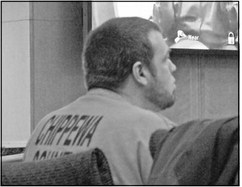Abbiehl’s future decided during sentencing


The next step forward for Travis Abbiehl, 37, Menomonie, was discussed during a sentencing hearing April 27.
Abbiehl was previously found Guilty, but Not Gu...


The next step forward for Travis Abbiehl, 37, Menomonie, was discussed during a sentencing hearing April 27.
Abbiehl was previously found Guilty, but Not Gu...